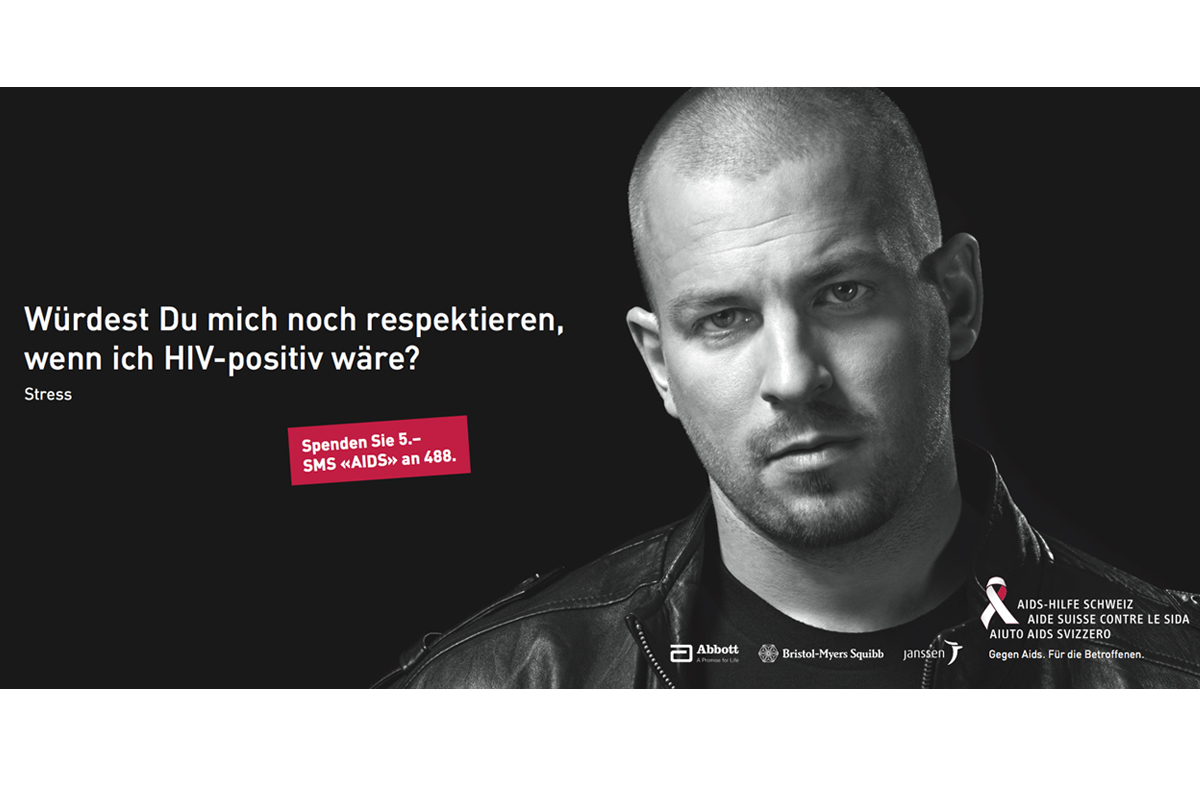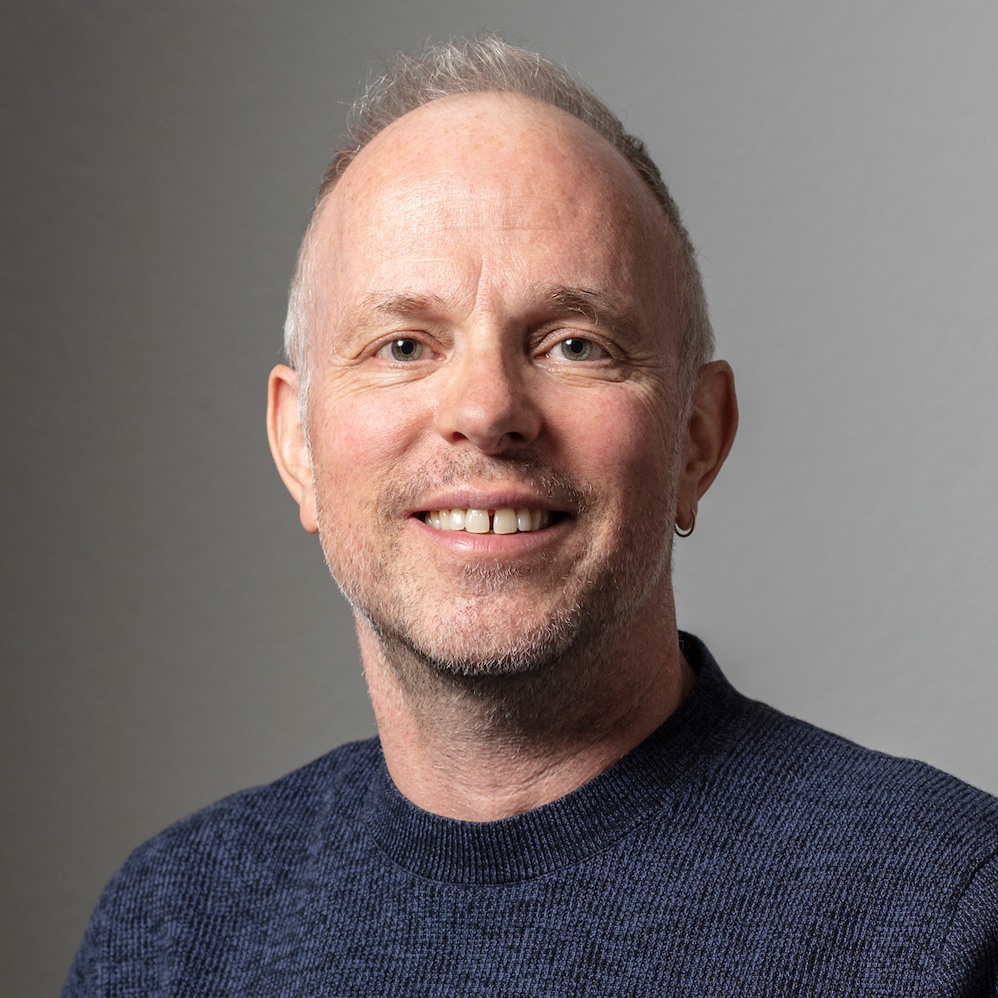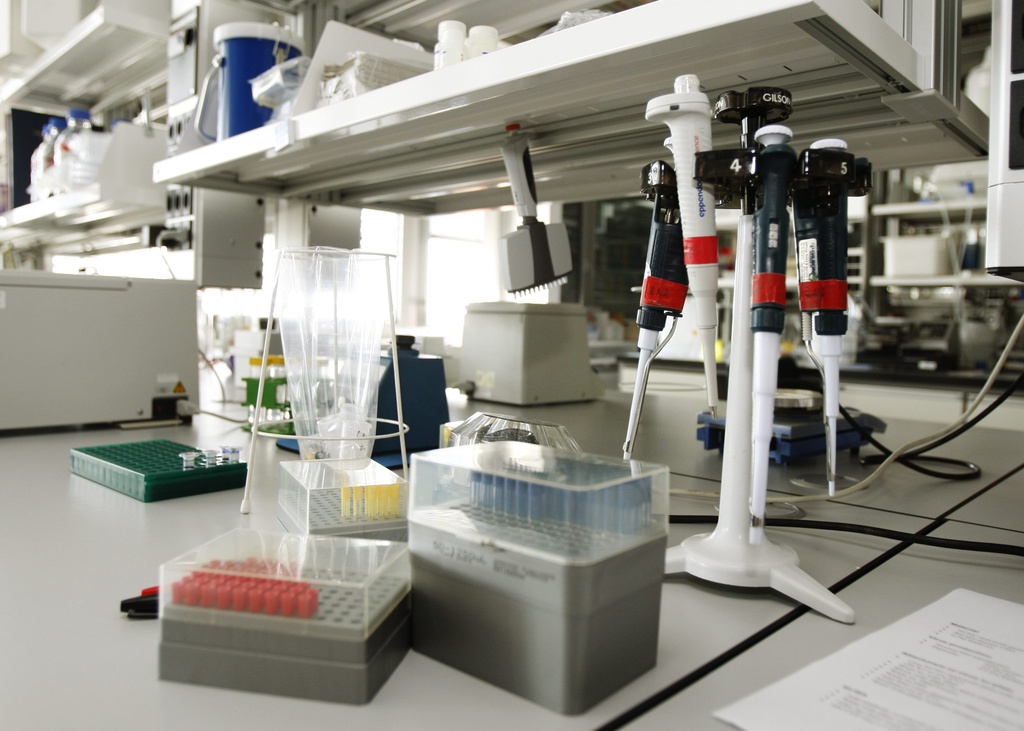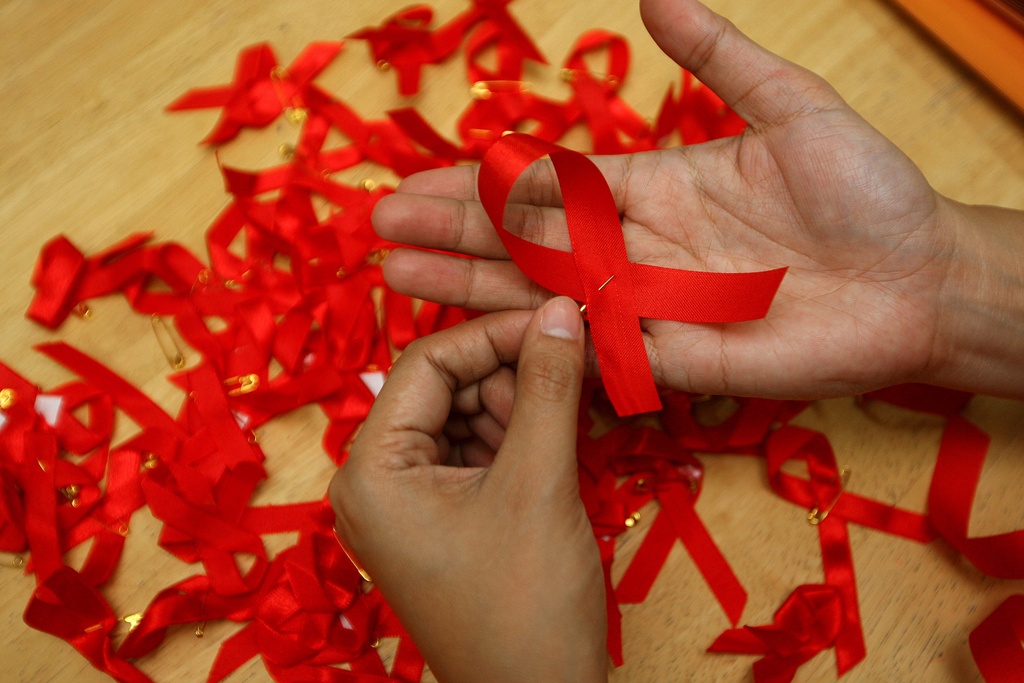Erasing the stigma of HIV/Aids at work

Around seventy per cent of Swiss people suffering from HIV/Aids are employed, many in full-time positions, but discrimination at work is still a daily concern.
On World Aids Day, swissinfo.ch looks at the issue of prejudice in the work place with the Swiss Aids Federation and Michel Baudois, who tested HIV positive in 1996.
The number of people seeking advice from the Swiss Aids Federation on employment issues has risen sharply in recent years, with many questions linked to discrimination.
Bullying by work colleagues and supervisors is one of the most common reasons for getting in touch. Comments about the illness made in employment references, dismissal letters or staff information “to prevent infections in the workplace” are other frequent examples.
“Often out of ignorance or prejudice people are dismissed if they are found to be HIV-positive. Or they get bullied by colleagues and bosses,” said Bettina Maeschli, head of communication at the Swiss Aids Federation.
After he was diagnosed positive Baudois thought he had only a few months to live. But thanks to huge advances in medicine he has been able to return to a normal life and daily work routine.
“An HIV-positive employee represents absolutely no danger in their social interactions at work,” explained the 49-year-old account manager of a large insurance firm in Zurich.
Baudois has experienced prejudice at work, however.
Ignorant managers
“The company was not the one to discriminate but rather ignorant individual managers. The firm was rather useless in its response,” he explained.
During a major restructuring it was suddenly decided that “I was in the wrong place even though after the process I would have had exactly the same post.”
Baudois demanded a one-on-one meeting with his bosses: “I wanted to hear what they had to say. The conversation didn’t take place; it was cancelled and the planned changes for me were dropped”.
But often employees are not able to defend themselves so easily, especially when they find themselves in the early trial period of a job.
Two of Baudois’s friends had this misfortune when they were handed their notice “with very poor explanations” after management discovered health statements they had made to their firms’ pension funds.
Maeschli has many other examples from the federation’s advice bureau: “One man who had done a full-time job was only paid 50 per cent, as they said he was HIV-positive and therefore had been unable to give his maximum effort. This is clear exploitation.”
Less time off
Baudois compares the life of someone with HIV to a diabetic who has to simply take their daily insulin.
“I work full time. Compared with other employees I can honestly say that I have less time off for illness,” he said.
“Some 70 per cent of people with HIV are employed. Most work every day,” said Maeschli.
The 84 cases of discrimination that were recorded by the Swiss Aids Federation over the past 12 months are just the tip of the iceberg, she added.
Every day the advice bureau “hears about cases from people living with HIV who call us to tell us about their problems in the work place”, said Maeschli.
Legal gaps
One of the main problems is that although a disability equality law has been in force in Switzerland since 2004, it only applies to federal administration posts.
“There is no anti-discrimination law in Switzerland,” said Maeschli.
This means that the onus is still on employees to prove they have been discriminated against.
The Swiss Aids Federation is working with other organisations for the adoption of a new anti-discrimination law and is currently seeking support in parliament.
Another issue is that insurance companies do not provide people living with HIV with daily sick pay. If a firm has no collective insurance scheme then people with HIV who fall ill are not covered.
“The principle of insurance is that existing conditions cannot be insured,” said Baudois.
“What I am critical about with this sector is that today’s medical advances are not adequately taken into account.”
To combat ignorance and prejudice in the workplace, the Swiss Aids Federation is pushing for the creation of HIV-related work regulations. Several large international firms like Johnson & Johnson and UBS have already drafted such texts.
“They advocate an open approach to the issue and for all staff to be trained to deal with sensitive personal information,” said Maeschli.
“Fears about HIV-positive employees are totally unfounded,” said Baudois. “Those with HIV are the ones who should be scared. As if someone at work has a bad cold, the risk of infection for untreated HIV cases is far greater.”
An estimated 34 million people worldwide had the human immunodeficiency virus (HIV) that causes AIDS in 2010, according to UNAIDS data, up 17 per cent on 2001, when 28.6 million were living with HIV. Around 68 per cent live in sub-Saharan Africa.
There were 2.7 million new HIV infections in 2010, including an estimated 390,000 among children. Globally new HIV infections peaked in 1997 and the rate has been falling since.
The proportion of women with HIV remained stable in 2010 at 50 per cent of all those with the virus, but in sub-Saharan Africa, women account for 59 per cent of people living with HIV.
An estimated 1.8 million people died of AIDS-related causes in 2010. Therapies prevented 700,000 deaths, according to UNAIDS. Aids-related deaths peaked globally in 2005 and have been falling since then.
Annual funding for HIV/Aids programmes fell to $15 billion in 2010 from $15.9 billion in 2009, well below the estimated $22-24 billion the UN agencies say is needed by 2015 to pay for a comprehensive, effective global response.
More than 32,000 people have tested positive for HIV in Switzerland.
About 25,000 people in Switzerland live with HIV and Aids.
From the beginning of the epidemic until the end of 2009, more than 9,000 Aids cases were recorded.
Around 6,000 people in Switzerland have died as a result of Aids.
In 2010, 609 new positive HIV test results were recorded. Of these, 25% were women. In the first nine months of 2011 the rate of new infections has stabilised at 403 (compared with 439 for 2010).
Approx. 44% of all infections are due to heterosexual contacts.
(Translated from German by Simon Bradley)

In compliance with the JTI standards
More: SWI swissinfo.ch certified by the Journalism Trust Initiative





You can find an overview of ongoing debates with our journalists here. Please join us!
If you want to start a conversation about a topic raised in this article or want to report factual errors, email us at english@swissinfo.ch.